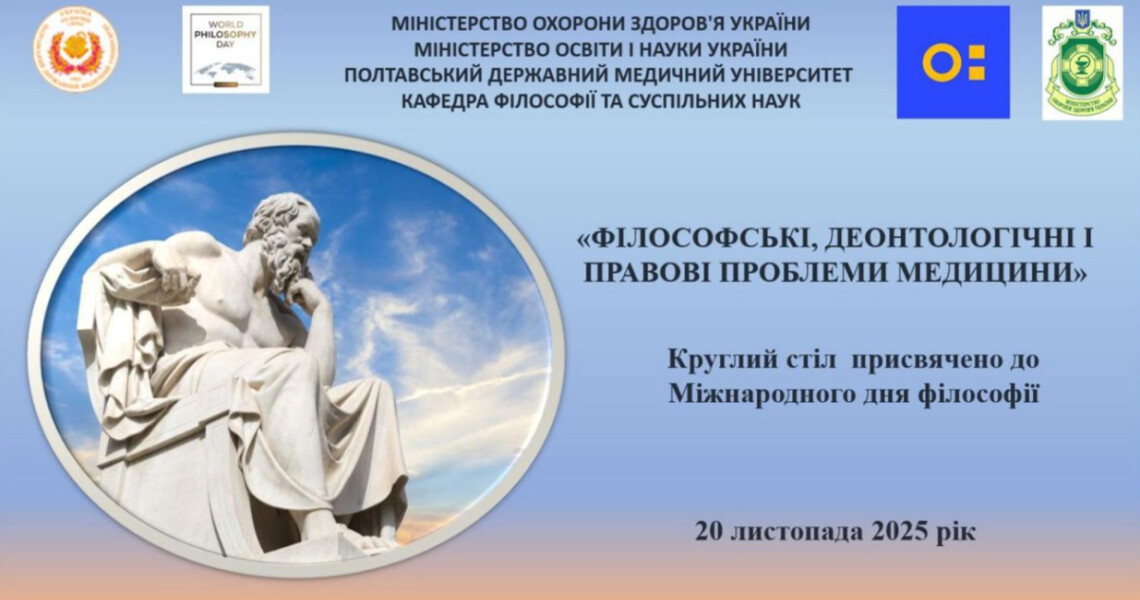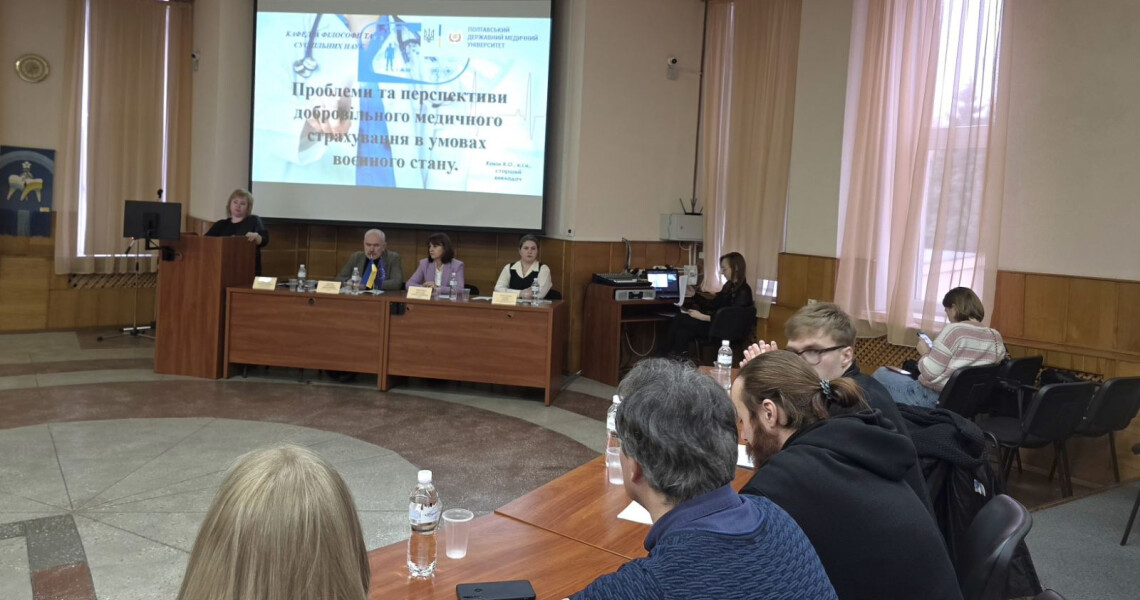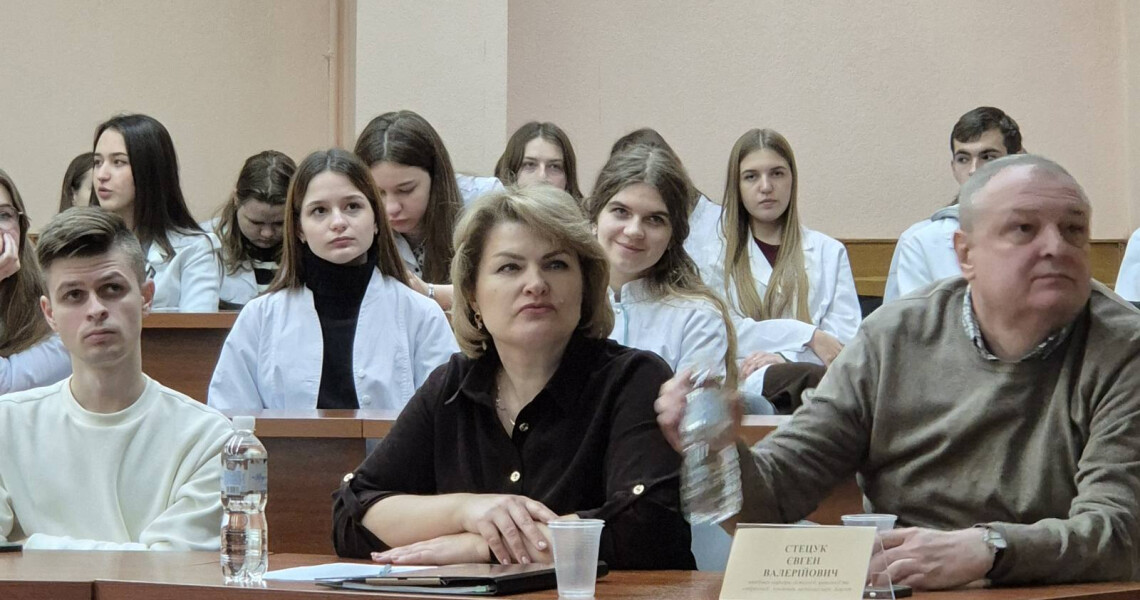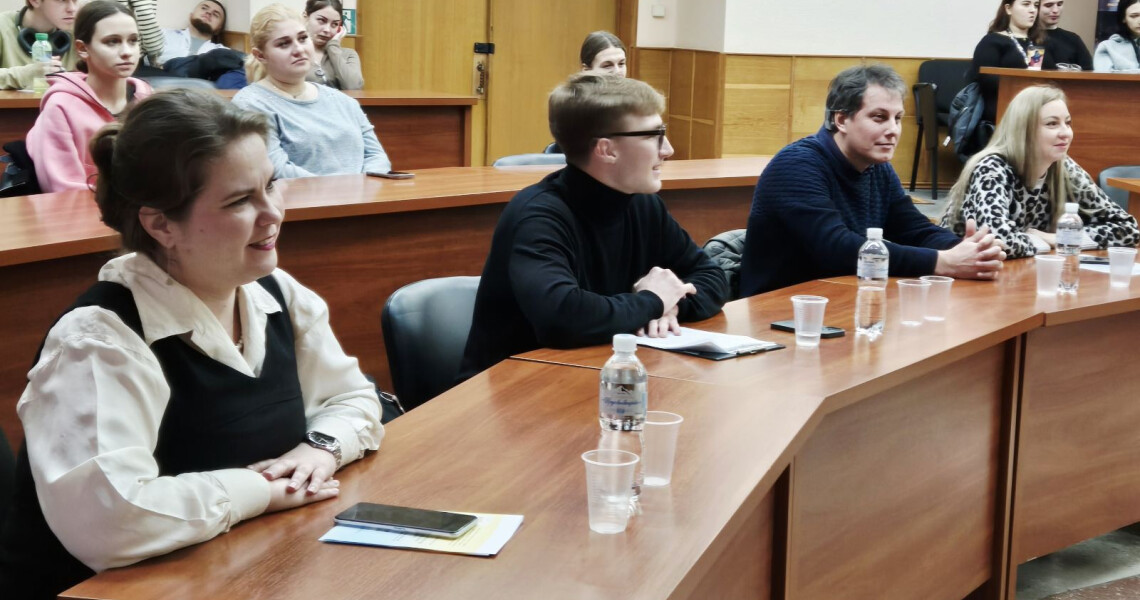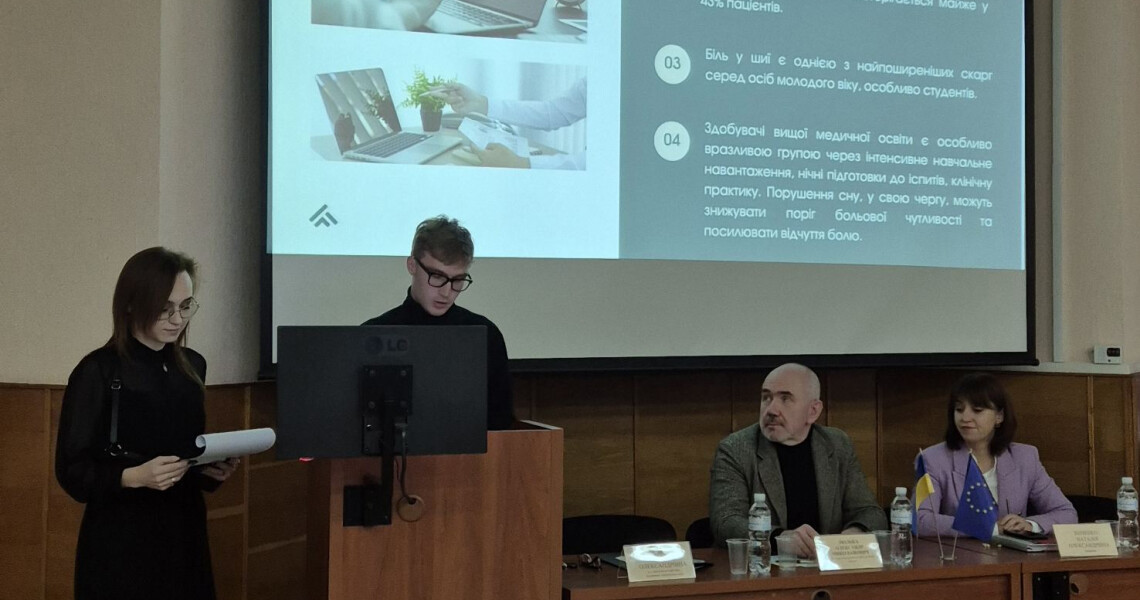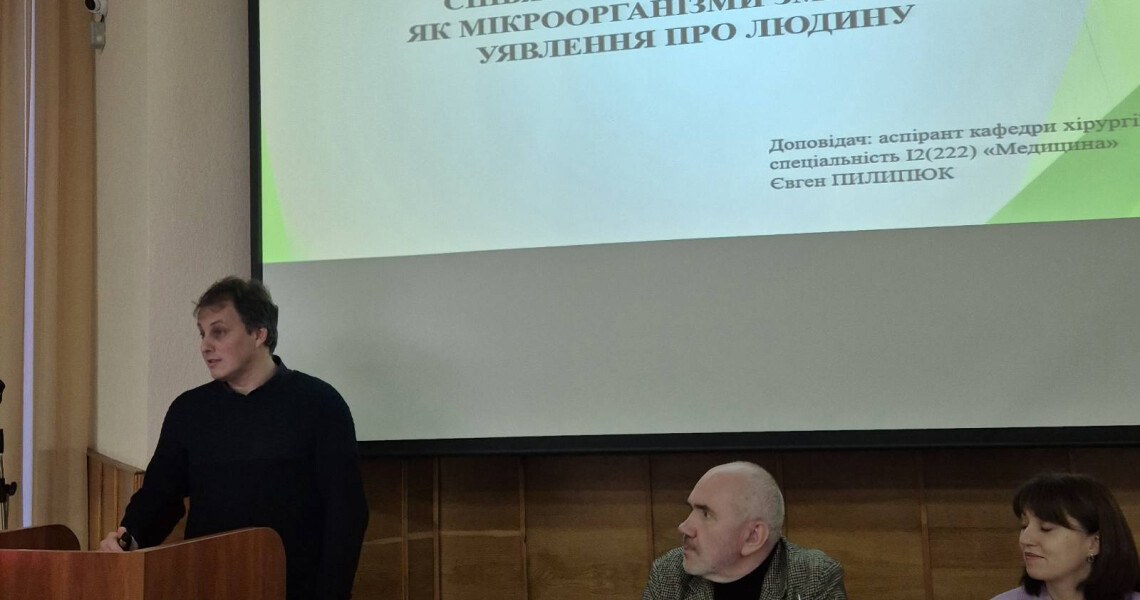Міжнародний день філософії проводиться у третій четвер листопада з 2002 року за регламентом ЮНЕСКО (UNESCO General Conference). Цього року відзначення цього дня припало на 20 листопада.
Сенс святкування Міжнародного Дня філософа полягає в тому, щоб знайти спільну платформу обговорення глобальних соціокультурних перетворень, які відбуваються зараз, долучити людей до філософської спадщини, наблизити сферу повсякденного мислення для нових ідей і стимулювати публічні дебати мислителів і громадянського суспільства з приводу викликів, що постають перед соціумом сьогодні.
На кафедрі філософії та суспільних наук уже стало доброю традицією проводити круглий стіл, присвячений складним і водночас надзвичайно актуальним питанням філософських, деонтологічних і правових засад медицини.
Цьогорічний захід об’єднав здобувачів вищої освіти ОПП «Медицина», «Стоматологія», «Медсестринство» «Громадське здоров’я», «Менеджмент охорони здоров’я та соціальне проєктування», «Терапія і реабілітація», а також аспірантів і викладачів у відвертій і глибокій розмові про людину, її суб’єктивність, моральні виміри медичної практики та виклики, що постають перед сучасною наукою в умовах стрімкого розвитку інформаційного суспільства.
Зі щирими привітальними словами до учасників звернувся в. о. декана міжнародного факультету Олександр Люлька, підкресливши, що подібні зустрічі сприяють становленню наукової свідомості та демонструють пріоритетності наукового мислення у XXI столітті. Його думку підтримав завідувач кафедри гістології, цитології та ембріології, доцент ЗВО Євген Стецук, наголосивши на важливості діалогу між здобувачами освіти різних рівнів та викладачами, який формує живий науковий простір університету.
До розмови долучилася й завідувачка аспірантури наукового відділу Галина Мороховець, відзначивши позитивну динаміку зростання кількості здобувачів ступеня доктора філософії – як свідчення розвитку наукової школи та підвищення інтересу молодих дослідників до філософії та медицини.
Захід не лише дав можливість обговорити широкий спектр міждисциплінарних проблем, а й сприяв удосконаленню ораторської майстерності та педагогічних компетентностей учасників, перетворивши традиційний круглий стіл на справжню платформу смислів, ідей та інтелектуального натхнення.
Прес-служба Полтавського державного медичного університету
World Philosophy Day: Meaning and Mission
World Philosophy Day has been celebrated on the third Thursday of November since 2002, according to the regulations of UNESCO (UNESCO General Conference). This year, the observance fell on November 20.
The purpose of celebrating World Philosophy Day is to create a shared platform for discussing the global sociocultural transformations taking place today, to engage people with philosophical heritage, to bring everyday thinking closer to new ideas, and to stimulate public debate among thinkers and civil society about the challenges facing our society.
At the Department of Philosophy and Social Sciences, it has already become a good tradition to hold a roundtable dedicated to complex yet highly relevant issues concerning the philosophical, deontological, and legal foundations of medicine.
This year’s event brought together students of the educational programs “Medicine,” “Dentistry,” “Nursing,” “Public Health,” “Healthcare Management and Social Projecting,” “Therapy and Rehabilitation,” as well as PhD students and faculty members for a sincere and profound discussion about the human being, subjectivity, the moral dimensions of medical practice, and the challenges modern science faces in the context of rapidly developing information society.
Warm greetings were extended to the participants by Oleksandr Liulka, Acting Dean of the International Faculty, who emphasized that such meetings contribute to the formation of scientific consciousness and highlight the priority of scientific thinking in the 21st century. His view was supported by Yevhen Stetsiuk, Associate Professor and Head of the Department of Histology, Cytology and Embryology, who underscored the importance of dialogue between students at various educational levels and faculty members, forming a vibrant scientific environment within the university.
Halyna Morokhovets, Head of the PhD Program at the Research Department, also joined the conversation, noting the positive growth in the number of PhD students—a sign of the development of the university’s scientific school and the increasing interest of young researchers in philosophy and medicine.
The event not only provided an opportunity to discuss a wide range of interdisciplinary issues but also helped participants improve their public speaking and pedagogical skills, transforming the traditional roundtable into a true platform of meaning, ideas, and intellectual inspiration.






